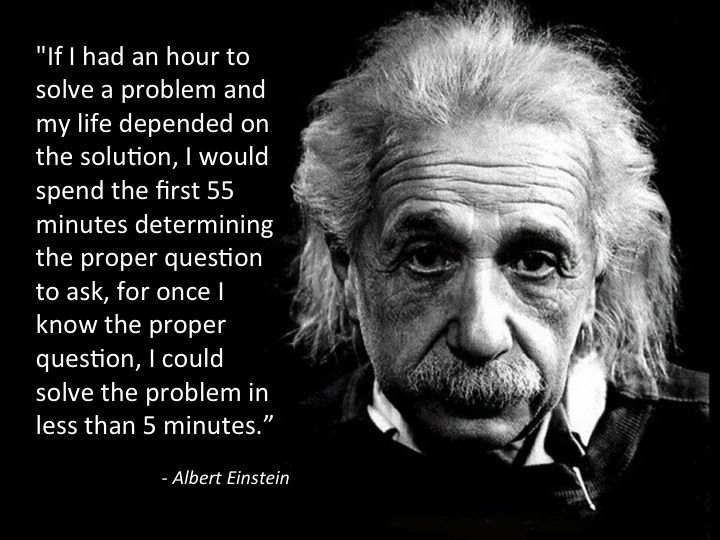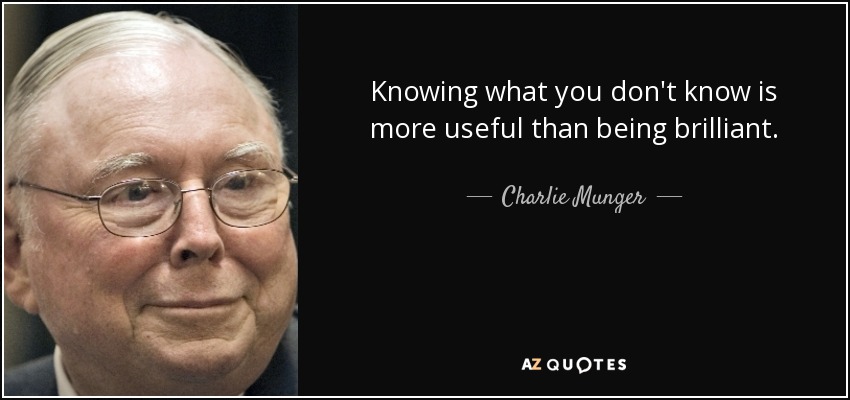Change Questions To Change Your Outcomes
Asking The Right Questions Is Critical For A Successful Change
Why Are Change Questions So Important?
Every time we initiate a significant change - whether in our personal life or in an organisation - we will most likely over-estimate our chances of a successful outcome and under-estimate the likelihood that things will not work out as we had planned.
Why is this?
In my experience, there are 2 reasons for this:
[1] We live in an interconnected and extremely complex world.
- The world contains innumerable moving parts that are subject to a randomness that is hard to predict.
- On occasions, this randomness can lead to extreme outcomes.
- Success is the exception rather than the rule.
- Failure is the norm.
[2] We are ill-equipped to initiate major change.
- We are hardwired to look for short cuts.
- This, together with our cognitive biases,
leads us to conclusions that tell us what we want to hear.
- We should never underestimate our capacity for self-deception and our lack of understanding of reality.
A major focus of this site is on thinking skills and if you strip that down to the basics, this is all about asking the right questions.
This article is part of a series on the art of persuasion, communication and change based on my 45 years in business, and I going to share with you a framework of questions that will enable you to handle any significant change.
I can not guarantee that you will succeed - but if you apply this model and ask these questions you will improve your judgement and be better equipped to learn and improve from your experiences however it plays out.
Fundamental Change Questions
Before proceeding with any significant change, you need to be very clear about these 4 points:
- Why do you need to make the change?
- What are the specifics of the change?
- How do you expect to benefit from the change?
- Who will experience the impacts of this change?
We then expand on these points and apply this template which considers key aspects in the planning of any significant change in your personal life or in an organisation:
CHANGE QUESTIONS
Blueprint Benefits Impacts Communications Risks Steps
Recommended reading:
Asking The Right Questions - How To Avoid Wonky Thinking
Blueprint For Change
A blueprint is a clear description of how your life or your organisation is going to
look after you have implemented your proposed change.
It is important that you have clarity about this for two reasons:
- It causes you to define and describe out how your life, or organisation, will be different after the change.
- It enables you to communicate and discuss with those who are involved with the change and who will be impacted by it.
Ask yourself:
- How will it be different?
- Where will it be different?
- Why will it be different?
- When will it be different?
Example:
Some years ago I was offered a job in Singapore. The role was as deputy CEO of an owner-managed chain of spas. My mission - if I chose to accept it - was to improve the profitability of the business with a view to rolling out a franchise across India and then undertaking a listing on the Indian stock exchange.
If I accepted this job it would have meant a very different life for me and my partner.
The financial upside was huge. But, aside from the major cultural changes of working in Singapore, the reality of working overseas for a number of years represented a major lifestyle change for both of us.
In considering this job offer I applied the change questions outlined in this article.
The one aspect that bothered me most was that I had run my own companies for many years and the idea of working for someone else, and especially an owner-manager, was not very attractive.
I decided to reframe the opportunity and expand my blueprint and look at the bigger picture.
I figured that regardless of how this job worked out, it would give me an opportunity to make an enormous change and establish myself in Singapore and South East Asia, at someone else's expense, and if necessary I would be far better placed to find alternative opportunites.
Benefits Of Change

The benefits of your proposed change are the raison d'etre, the whole point and purpose, for your proposed change.
For each anticipated benefit you need to know the following:
- Description - what precisely is the benefit?
- Capabilities - what will this benefit make possible for you to do?
- Measurement - how will it be measured?
- Dependencies – what will it depend on?
- Timescales
– over what period of time will it occur?
Example:
The primary benefit of this job offer was the potential for long term financial security for my family and a capital based to finance other business opportunities.
This was a financial benefit that would be measured in salary, bonuses and share options.
The major dependencies were:
- The owner of this business and my relationship with him.
- His prepardedness to handover the running of the business to me.
- The validity of the assumptions on which his business plan were based.
- What to me were the many "unknown unknowns".
The timescale for the bigger benefit of share-options was approximately 3-4 years.
The secondary benefit of establishing myself in Singapore and South East Asia were almost a given provided I managed to stay out there for a least a few months.
Impacts Of Change

This is when the full impacts - positive and negative - need to be thought through and explored carefully and all potential people issues examined.
This is about the
management of expectations and the emotional transitions, that those affected by the change will experience, as they come to terms with the impacts of your proposed change.
- Who is your proposed change going to affect?
- What will they lose?
- What will they gain?
- How will it affect them?
- How will they react?
Example:
This proposed change impacted my partner directly and my grown up children and my parents less so.
For my partner the main loss was not having me around so much - but given that a lot of my career had been spent travelling, this would require an adjustment but more to the periods of my being away being longer rather than the fact of me being away.
The potential gains were large as I have described.
My partner reacted positively to this potential opportunity. She had travelled extensively and saw this as an opportunity for her to spend more time travelling.
With my children and parents we all decided that the impact of my working away would be considerably lessened if I came back regularly for short breaks and spent time with them every quarter.
Communicating Change
This is where you figure how to communicate with those people who will be impacted by the change, and to do so in a way that enables them to accept it and be able to support you in it.
Often this is where the disconnects can occur between you as make the change and those who will be impacted by the change.
Good communication is critical.
The bigger the change there is going to be then the greater the need for effective communication about the reasons for the change, how it will look after the change, and the benefits of the change.
5 guiding principles of a good change management communication strategy
- Clarity of message - to ensure relevance and recognition
- Resonance of message - the emotional tone and delivery of the message
- Accurate targeting - to reach the right people with the right message
- Timing schedule - to achieve timely targeting of messages
- Feedback process - to ensure genuine two way communication
The key questions that your communication needs to address:
- Who are you trying to reach?
- What are your objectives?
- What are the key messages?
- What information will be communicated and to what level of detail?
- In terms of timing and frequency, when will you communicate?
- What means and media will be used to communicate?
- How will you invite, and respond to, feedback?
Example:
Communicating with the various members of my family was not that complicated.
With my children and parents, the level and nature of contact would remain very similar to what it already was via email and Skype [back then] and alternative low cost messaging services.
The nature of our communications would remain similar to what it already was.
With my partner we agreed that we would talk 2 or 3 times.
We also agreed that as she was a major stakeholder in this venture I would update her regularly as to how the new role was developing.
Risks of Change

It is very important that you pay careful attention to the risks that you will face as you move forward with your proposed change.
You will also want to give careful thought as to how you can mitigate those risks.
I stress this because the natural tendency is to underestimate risks and to be fuelled and buoyed by optimisn and a positive expectation of success.
In an earlier article I outlined a simple structured process for identifying issues associated with each major task in implementing your proposed change.
This process will identfy some of the risks you will face, but you also need to take this a stage further and examines risk in terms of the:
- Where might these risks occur?
- What assumptions have you made that may not prove solid?
- What dependencies [on people, processes and events] are you relying on?
- What could wrong?
- What is the likelihood?
- What impact will this have?
- How can you reduce the impact and mitigate the risks you have identified?
Example:
Based on my past experience I knew that the biggest risk to this proposed venture would be the owner of the business.
Owners find it hard - if not impossible - to let go and hand over control of the operational management of their business. So I was prepared for this risk.
The dependency was the owner and likelihood of this issue arising was high.
I tried not to make to make too many assumptions, but in these situations there are limits as to how much due diligence you can do.
So I was also prepared for the franchise rollout to not be entirely straight-forward and, as with the issue of the owner letting go, I decided to deal with these things as and when they arose.
I also knew that there would unknown issues and I would just have to deal with them as they arose.
Footnote:
In case you are wondering how this all worked out - I did take the job and it didn't work out!
The owner could not let go and was a nightmare to work with.
The killer issue [unknown to me at the outset] was that he had taken on a major investor prior to my arrival and he had a very fractious and contentious relationship with this investor which rapidly resulted in litigation and the termination of his expansion plans.
I parted company with this owner after 4 months and applied my backup plan and secured a job with a regional management consultancy in Singapore which developed into the establishment of a new business focused on commodities and of which I am still the CEO.
The application of these change questions and the structured approach to the initial opportunity paid off!
Steps to Change
This is the point at which you identify the steps you have to take to implement your proposed change and to successfully realise the benefits.
Your first big decision is the “Business as Usual” test as you ask yourself:
- Is this an Incremental Change or a Step Change?
An incremental change is one that you can handle within business as usual. But if, as is likely, this is a step change then you will need to adopt a more carefully thought through approach:
- Do you have all the skills and experience you need to make this change or do you need to recruit some outside assistance?
-
Have you identified the issues and impacts that will arise with each key task in implementing your proposed change?
- Have you set out in a logical way the things you need to get right in order to get the desired result?
Recommended reading:
Getting From A to B Is Not Aways A Straight Line?
Further Reading:
Persuasion
[1] The Art Of Persuasion The One Fundamental Principle - Create A Win-Win
[2] The Art Of Persuasion Advanced Communication Skills - Gaining BuyIn
[3] The Art Of Persuasion Planning For Success - Here's How To Do It!
Change
Getting From A to B Is Not Aways A Straight Line
Group Culture - The Invisible Software That Rules Your Life
Change Questions To Change Your Outcomes
Communication
How To Influence without Authority - 6 Key Tips
Situational Communication - Different Strokes For Different Folks
Return from "Change Questions" to: Communication Persuasion and Change
Or to: Walking The Talk
LATEST ARTICLES
Does Prayer Work? The Psychology of Prayer, Meditation and Outcomes
 Reality Is A Complex System Of Countless Interactions - Including Yours. So does prayer work? The problem is that the question itself is usually framed in a way that guarantees confusion. We tend to a…
Reality Is A Complex System Of Countless Interactions - Including Yours. So does prayer work? The problem is that the question itself is usually framed in a way that guarantees confusion. We tend to a…Living in Survival Mode Without Surrendering Mental Authority
Living in Survival Mode Without Surrendering Mental Authority
 Clear Thinking When You’re Just Trying to Stay Afloat. Many people today are overwhelmed because they are living in survival mode - not temporarily, but as a persistent condition of life. For many, th…
Clear Thinking When You’re Just Trying to Stay Afloat. Many people today are overwhelmed because they are living in survival mode - not temporarily, but as a persistent condition of life. For many, th…Manifestation Without Magic: A Practical Model
 Manifestation without magic is not a softer or more intellectual version of popular manifestation culture. It is a different model altogether. Popular manifestation teachings tend to frame reality as…
Manifestation without magic is not a softer or more intellectual version of popular manifestation culture. It is a different model altogether. Popular manifestation teachings tend to frame reality as…Staying Committed When You Can't See Progress - The Psychology of Grit
 Uncertainty Is Not The Absence Of Progress, Only The Absence Of Reassurance. One of the most destabilising experiences in modern life is not failure, but uncertainty and staying committed when you can…
Uncertainty Is Not The Absence Of Progress, Only The Absence Of Reassurance. One of the most destabilising experiences in modern life is not failure, but uncertainty and staying committed when you can…The Battle For Your Mind - How To Win Inner Freedom In A Digital Age Of Distraction
 From External Events to Inner Events. We often think of “events” as things that happen out there: the traffic jam, the rude comment, the delayed email reply. But what truly shapes our experience is wh…
From External Events to Inner Events. We often think of “events” as things that happen out there: the traffic jam, the rude comment, the delayed email reply. But what truly shapes our experience is wh…How to See Your Thoughts Without Becoming the Story
 A Practical Guide to Thought-Awareness. You can spend your life inside the stories of your mind without ever learning how to see your thoughts clearly and objectively. Most of the stuff we tell oursel…
A Practical Guide to Thought-Awareness. You can spend your life inside the stories of your mind without ever learning how to see your thoughts clearly and objectively. Most of the stuff we tell oursel…The Collison Decision Matrix - A Simple Framework for Better Choices
 The Collison Decision Matrix Is A Practical Everyday Thinking Tool. Most of us spend a surprising amount of time worrying about decisions. From small ones such as what to wear, what to eat, what to te…
The Collison Decision Matrix Is A Practical Everyday Thinking Tool. Most of us spend a surprising amount of time worrying about decisions. From small ones such as what to wear, what to eat, what to te…The Power Of Asking The Right Question
 The Power Of Asking The Right Question Lies In The Quest For Insight. To experience the power of asking the right question you must develop the practice of asking questions. The best way to improve th…
The Power Of Asking The Right Question Lies In The Quest For Insight. To experience the power of asking the right question you must develop the practice of asking questions. The best way to improve th…Site Pathways
 Here is a site pathway to help new readers of Zen-Tools navigate the material on this site. Each pathway is based around one of the many key themes covered on this site and contain a 150 word introduc…
Here is a site pathway to help new readers of Zen-Tools navigate the material on this site. Each pathway is based around one of the many key themes covered on this site and contain a 150 word introduc…How To Live With Contradiction - Beyond Thought Let Stillness Speak
 A major impact on so many peoples' lives is the situational contradiction of unfilled realistic expectations. So where does all this leave us? Well here we are, with mental equipment that is more lim…
A major impact on so many peoples' lives is the situational contradiction of unfilled realistic expectations. So where does all this leave us? Well here we are, with mental equipment that is more lim…How To Trust The Process Of Mindfulness - Right Now
 In mindfulness, the process isn’t some distant goal — it's what is happening right now. When we talk about how to trust the process of mindfulness the credibility of the process is heavily dependent…
In mindfulness, the process isn’t some distant goal — it's what is happening right now. When we talk about how to trust the process of mindfulness the credibility of the process is heavily dependent…





